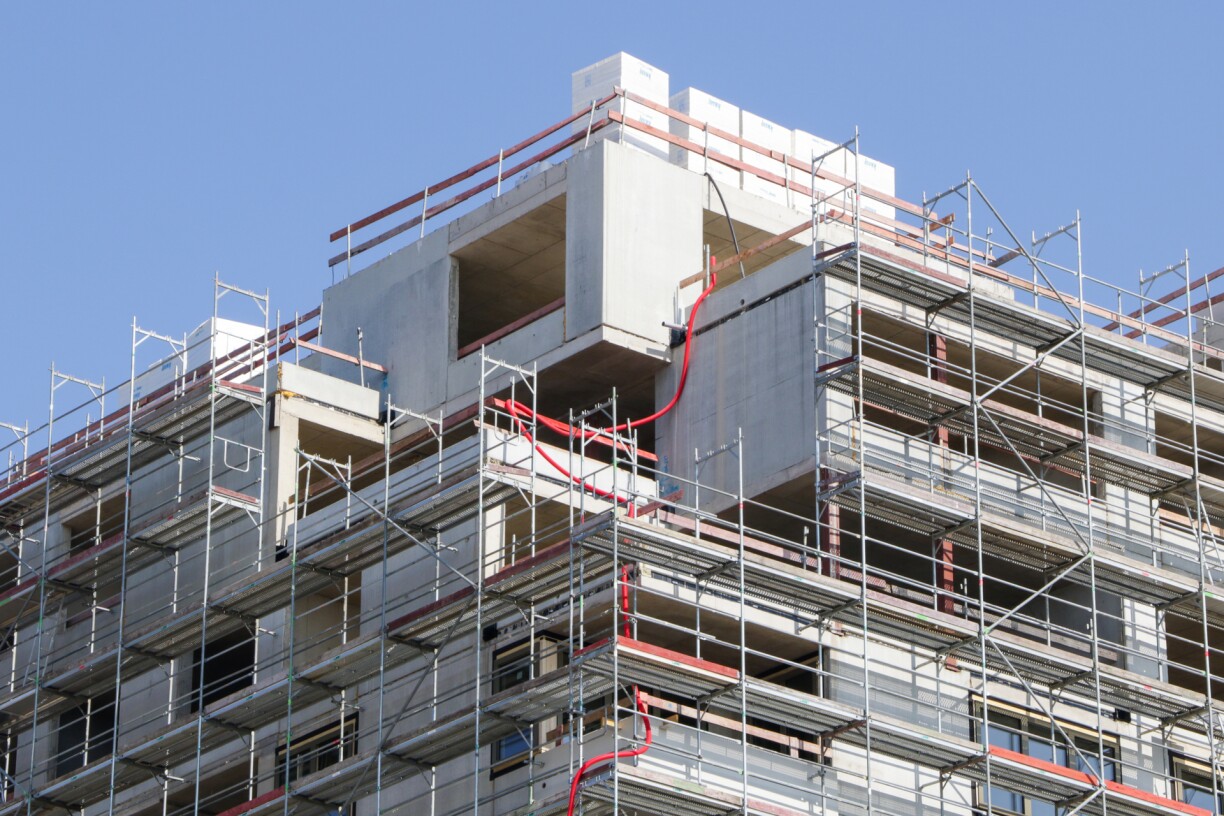
Buying a property is no longer affordable for everyone in Luxembourg. In fact, the latest spate of price rises has excluded many residents from the dream of home ownership. Many were still able to qualify for home ownership before interest rates rose.
Despite the recent governmental measures announced in January aimed at easing the burden for potential buyers, buying in the Grand Duchy is no longer what it used to be in the past. This rings particularly true for those eyeing off-plan purchases, a process further complicated when considering properties in the vicinity of Luxembourg City. Despite the abundance of available properties, securing a suitable home has become a formidable challenge.
-> Fondation IDEA: Housing crisis a constant throughout Luxembourg’s history

In an effort to unravel the current cost of home ownership, our colleagues from RTL Infos got in touch with Credihome CEO, Vincent Quillé. Together, they estimate the average price tag attached to a “finished” off-plan house at €1.5 million. Quillé confirmed that fixed rates for a 30-year term “are currently hovering between 3.8% and 3.9%.” Based on these figures, our colleagues calculated the monthly instalments facing prospective buyers.
If the buyer is a first-time buyer, “which is unlikely in the case of a house in Luxembourg,” Quillé pointed out, they can take advantage of the revised notarial deeds related to property transactions (“Bëllegen Akt”), significantly reducing registration fees. They could also provide a minimum deposit, estimated at €20,000 for this type of transaction.
In this case, “the client must earn between €15,000 and €16,000 net per month,” Quillé estimates. Their monthly repayments would be approximately €7,000. Banks, he noted, are generally cautious with interest rates, with a preference for lower-risk scenarios.
It is worth noting that it is more attractive to buy as a couple to share the monthly payment and take advantage of the €80,000 “Bëllegen Akt” offered by the government in 2024.
“If we take a more typical situation, for a house costing €1.5 million, I’d expect the client to put at least €200,000 down,” Credihome’s CEO explained. This would result in monthly payments of approximately €6,000, requiring a net monthly income of around €13,600 for the client or household.
However, securing such financing packages hinges on the bank’s willingness to extend credit, contingent upon the applicant’s financial stability, collateral, and track record. Quillé noted that while many banks may consider applications with an effort ratio exceeding 40%, a solid financial foundation is imperative.
For those open to a bit of commuting, fret not. Our colleagues have explored options for you, spotlighting a house priced at €1 million as an alternative. Without a substantial down payment, the current monthly instalments stand at €4,600. This necessitates a minimum net salary of €10,500 to comfortably accommodate this investment, still under a 30-year fixed-rate mortgage.
However, for those considering a more modest approach and aiming to remain within proximity to the capital, “you can find a nice two-bedroom flat for €750,000,” according to Quillé. For those who do not mind living in a flat, the financial landscape is more forgiving, with monthly payments averaging around €3,500, requiring a net salary of at least €8,000 to meet financial feasibility.

The recent downturn in the new-build market begs the question: What factors have contributed to this decline? Several elements are at play, chief among them being persistently high prices amidst an industry teetering on the edge of collapse.
One pivotal factor in this equation is the waiting period, and above all the challenges associated with it, inherent in new-build purchases. When buying off-plan, clients generally agree to wait between 24 and 36 months for the project to be completed. In some more recent cases, this period has been reduced to as little as 12 months.
While this is good news, it does mean that buyers must find alternative accommodation until the project’s completion. However, with rents skyrocketing, finding temporary housing has become increasingly difficult.
Despite banks offering clients the option to defer loan repayments during the construction phase, the surge in interest rates since 2022 has offset this advantage. In practical terms, this can mean paying several thousand euros a month.
Buyers therefore find themselves grappling with exorbitant monthly expenses, juggling rent, mortgage payments, and the ever-increasing cost of living. These mounting challenges are steering buyers away from the new-build market, instead turning their attention to existing properties as a more viable option, pending a paradigm shift in market dynamics.
Vincent Quillé remarked, “When they buy a house for €1.5 million, clients end up wondering: With financing costs having tripled, who’s going to buy my house for €2 million in ten years’ time? In these circumstances, I’m not sure it’s an attractive investment.”
To maintain pace with this exponential rise in costs, salaries would need to experience a “substantial” surge or interest rates would need to revert to 2020 levels — a prospect Quillé finds “hard to believe.” It is becoming increasingly apparent that expectations for lucrative returns on housing investments in Luxembourg are unrealistic, particularly in the absence of a breakthrough in the stagnant new-build market.